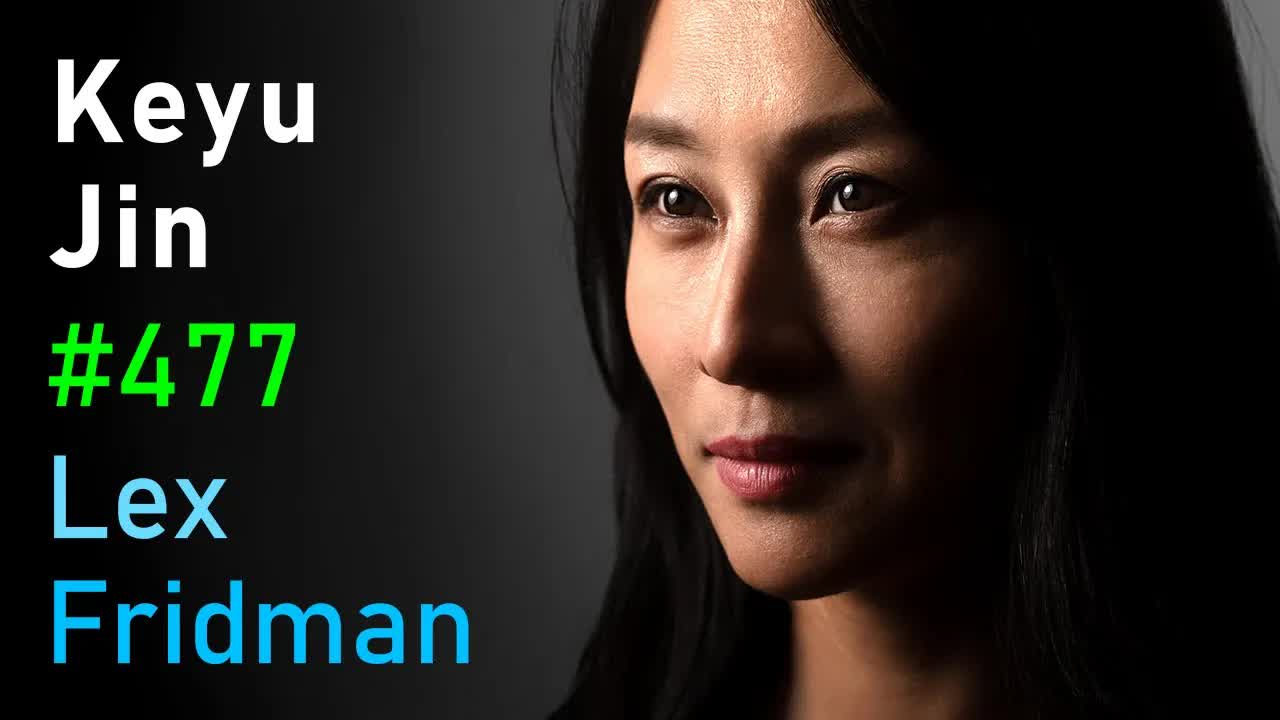Summary
Ku Jin, an economist at the London School of Economics and author of The New China Playbook, discusses major misconceptions about China's economy in this Lex Fridman podcast episode.
Key Economic Insights:
The biggest Western misconception is that China's economy is centrally controlled by a few people. In reality, it's highly decentralized with local mayors driving innovation and growth through competitive "mayor economy" dynamics. China combines capitalist competition with socialist social fabric - companies are ruthlessly competitive while society maintains strong communal bonds.
Cultural and Educational Framework:
Chinese culture balances deference to authority with individual entrepreneurship, rooted in Confucian values of social harmony and meritocracy. The education system emphasizes intense competition through standardized testing, creating ambitious but conformist thinking. Jin contrasts this with American "secret" competition and creativity encouragement.
Economic Transformation and Reforms:
Deng Xiaoping's pragmatic reforms from the late 1970s transformed China through decentralized local government incentives tied to GDP growth. This "mayor economy" model drove rapid industrialization, real estate development, and technological innovation, with local officials competing for promotion based on economic performance.
Innovation and Technology:
China excels at scaling and diffusing technology (1-to-N innovation) rather than breakthrough invention (0-to-1). The recent DeepSeek AI breakthrough exemplifies China's cost-cutting, scale-based approach to innovation. US export controls inadvertently accelerated Chinese technological development through "crisis innovation."
Current Challenges:
China faces a real estate crisis that has impacted local government finances and consumer wealth. The one-child policy created demographic challenges and intensified educational competition. Despite economic slowdown, Jin argues the fundamentals remain strong, rejecting collapse predictions.
US-China Relations:
Jin advocates for mutual respect in trade negotiations, warning that tariffs harm both countries. She emphasizes China's desire for de-escalation while maintaining core principles around Taiwan and Hong Kong. Cultural understanding and face-saving are crucial for successful diplomacy.
Future Outlook:
The new generation of Chinese entrepreneurs focuses on local economies, work-life balance, and consumer experiences rather than pure manufacturing. Second and third-tier cities are becoming centers of innovation and opportunity, representing China's evolving economic priorities.
Key Points
- China's economy is highly decentralized despite political centralization, with local mayors playing crucial roles in driving growth and innovation rather than being controlled by central authority
- The relationship between Chinese people and authority involves paternalism and negotiated deference, not blind submission - there's an implicit social contract trading some deference for stability and prosperity
- China operates as a hybrid system that's extremely capitalist economically while maintaining socialist social fabric and communal values
- Competition in China is ferocious, driven by economic circumstances and the need to succeed among 1.3 billion people, creating intense pressure in education and business
- Confucianism emphasizes social harmony, moral discipline, education, and individual responsibility to contribute to society as core values
- China's meritocratic system, based on standardized testing and competition, has been fundamental to economic success but is now eroding as connections become more important
- Deng Xiaoping's pragmatic reforms in the late 1970s transformed China from a political/ideological focus to an economic focus, enabling unprecedented growth through decentralization and incentives
- The "mayor economy" creates competition between local officials measured on GDP growth, driving rapid development but sometimes leading to inefficient resource allocation
- Chinese culture combines extreme long-term patience with short-term "short flat fast" thinking - patient on generational investments but impatient for quick business returns
- US export controls and sanctions have backfired, accelerating China's domestic technological development rather than slowing it down
- China excels at "1 to N" innovation (scaling and improving existing technologies) while the US leads in "0 to 1" breakthroughs, creating complementary rather than competitive advantages
- The relationship between Chinese government and private companies is complex and supportive when businesses align with national goals, not simply suppressive
- China's "innovate first, regulate after" approach contrasts with Europe's "regulate first" model, allowing faster innovation but creating some instability
- DeepSeek represents China's ability to achieve breakthrough results through crisis-driven innovation and resource mobilization when faced with existential threats
- The one-child policy had massive unintended consequences including empowering women, increasing savings rates, creating intense educational competition, and current demographic challenges
- China's real estate crisis stems from efforts to make housing affordable and reduce speculation, but has severely impacted local government finances and consumer confidence
- Tariffs are economically inefficient tools that harm both countries - better approaches involve strengthening domestic competitiveness through investment and innovation
- Cultural understanding and respect are crucial for successful US-China diplomatic relations, with face-saving and mutual benefit being essential elements
Full Transcript
 Great Pods
Great Pods
 Great Pods
Great Pods